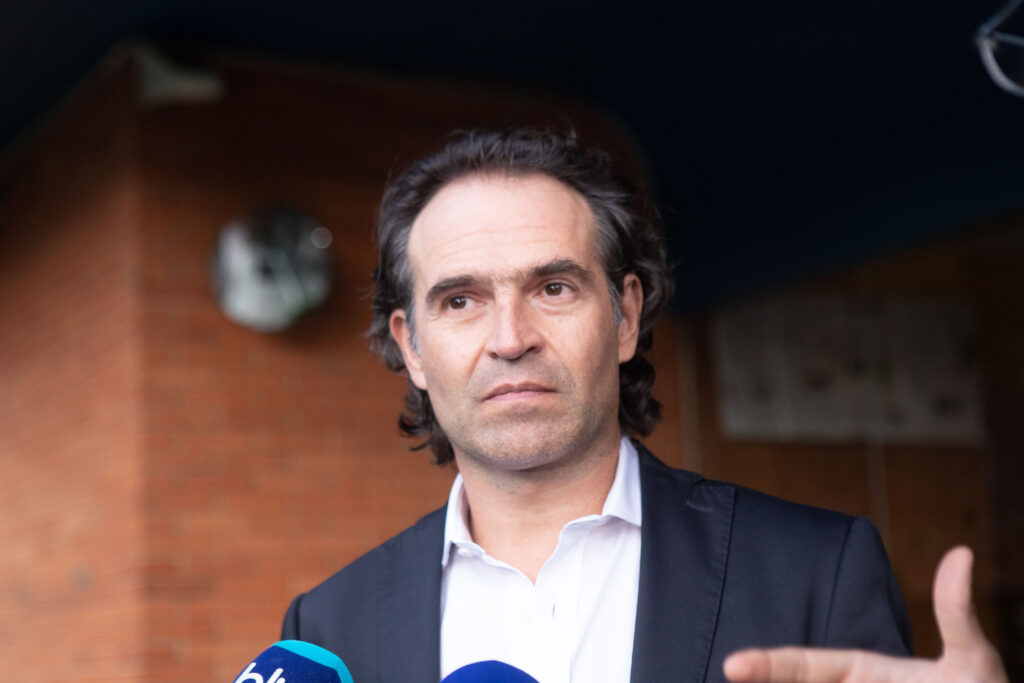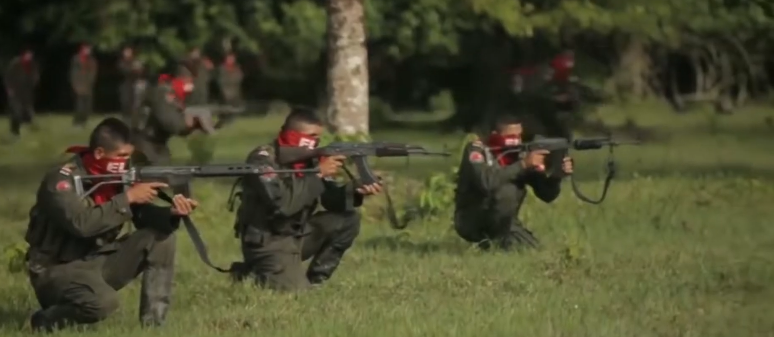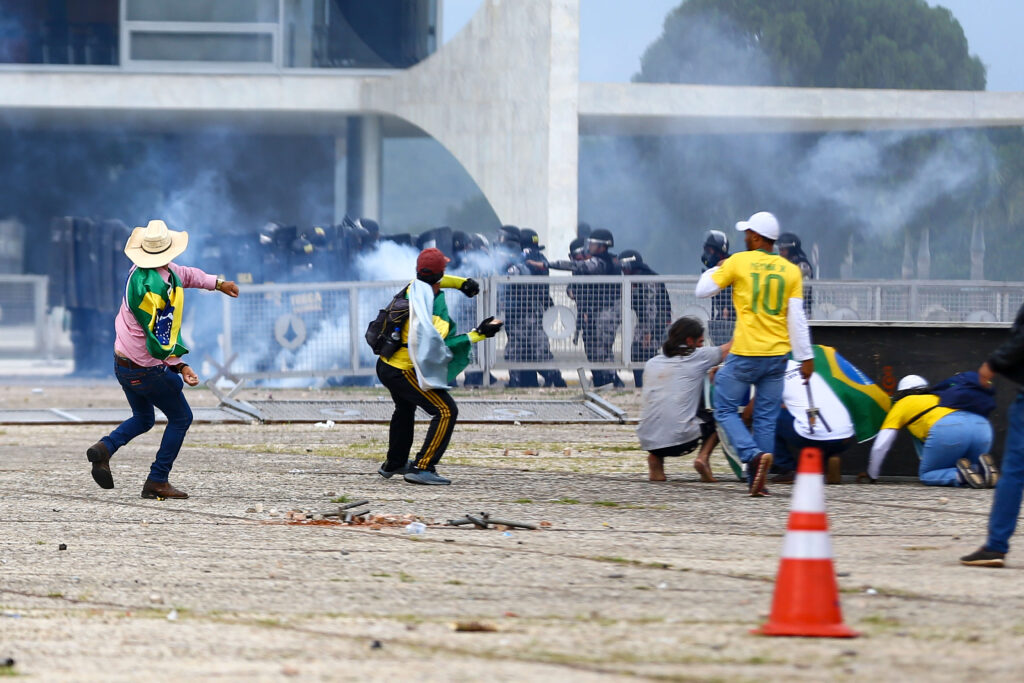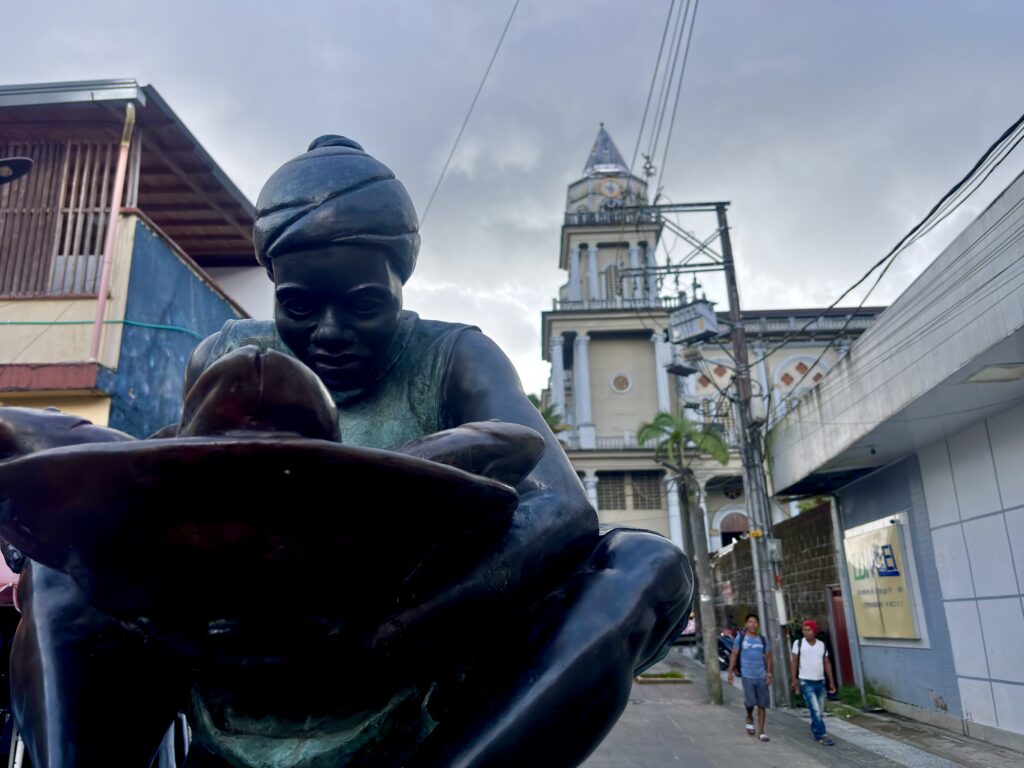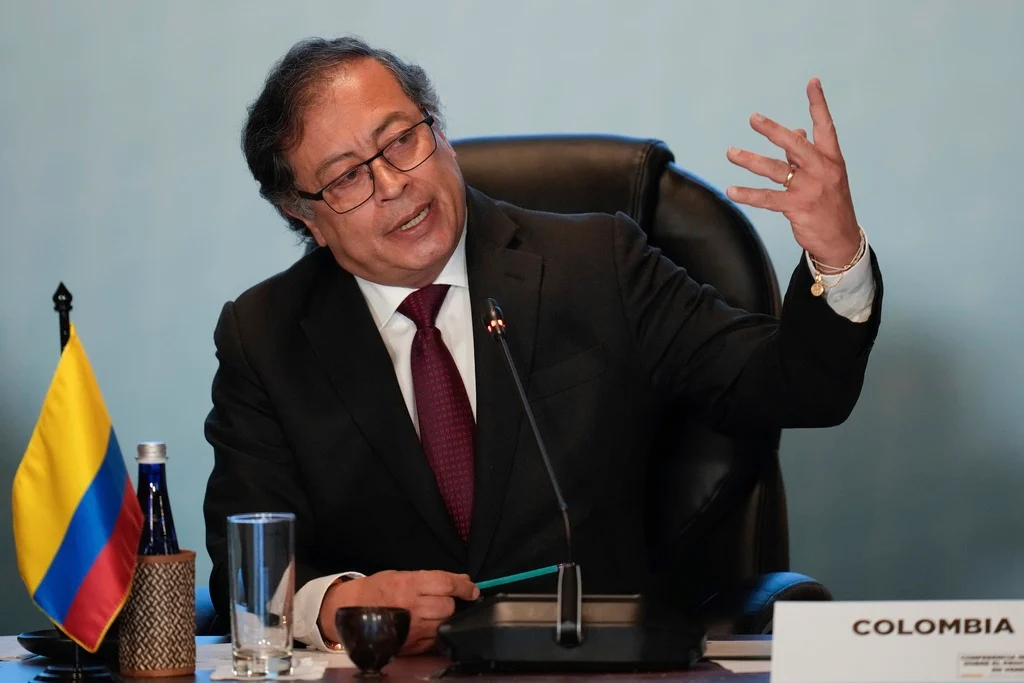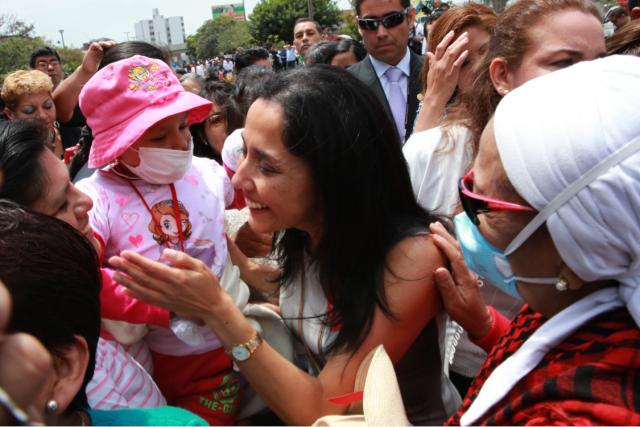This article was originally published in January 2022 by Natalia Vélez Lopera on The Bogotá Post, a sister publication.
Federico Gutiérrez is a familiar face for Colombians: he has been in politics since the late 1990s and was Mayor of Medellin from 2016 to 2019, known for his security policy and achieving approval ratings of up to 96%. He is now a pre-candidate for the country’s Presidency.
For the May 2022 Elections, the 47-year-old (among the youngest of candidates) is running with rightwing coalition Equipo por Colombia – polls position him among the six candidates with the best chances of entering the race for the presidency.
Within his own coalition, he is facing off with men like former-Finance Minister Oscar Zuluaga. Some see Gutierrez as a candidate of moderate centrism and stability, while some commentators say he’s the candidate of far-right former-President Álvaro Uribe, whose patronage pushed current President Iván Duque to success in 2018, and who supported Gutierrez’ own Mayoral campaign in 2011.
In May, his coalition face the centrist Centro Esperanza, who have put forward precandidates including Alejandro Gaviria and Sergio Fajardo (another former Mayor of Medellín), and the leftwing Pacto Histórico, led by Gustavo Petro, currently the favorite for the presidency according to the polls.
But there’s months to go, which – in political time – is enough to change everything. The Bogotá Post interviewed Gutiérrez, discussing international politics, the peace process, and his key goals if he makes it to the Presidency.
The Bogota Post: What would be your approach if you become president?
Federico Gutiérrez: Colombia is currently overcoming the worst economic crisis in its history. In 2020, due to the pandemic and unemployment, 3.5 million Colombians fell into poverty, and 2.7 million people entered extreme poverty.
With these numbers, we have a country in which 42% of the people are in poverty, and almost 7 million of them survive on less than 36 dollars per month. At this moment, a good part of the country is enduring hunger. More than 70% of the population does not consume three meals a day in cities such as Cartagena and Barranquilla.
Colombia lost a decade of poverty reduction: it returned to the situation of 2011: 3 out of 7 Colombians are poor.
Therefore, my priority as president will be to fight poverty and generate the conditions to grow above 5% per year. Only if we grow and create jobs will we reduce poverty. I don’t know a better policy to improve the living conditions of households and reduce poverty than job creation.
That is why in Colombia, we must make a huge effort to increase our productivity and competitiveness, investing with quality in sectors that positively impact growth and the generation of opportunities in the different regions of the country.
TBP: What role do you think Colombia should play in international politics?
FG: Colombia’s role in the international arena should be oriented towards promoting bilateral relations with different countries focusing on common issues such as trade, strengthening of industrial sectors, social investment, and technological exchange.
Secondly, I believe that Colombia should more actively accompany multilateral institutions such as the Organization of American States and the Inter-American Human Rights System. This is to promote democracy and individual freedoms in the region.
Third, Colombia should lead a multilateral initiative with different countries in the region to confront the scourge of drugs and terrorism. These two issues are a threat to democratic stability in Latin America. For this reason, a joint solution is needed to reduce the impact of these threats.
Fourthly, Colombia must promote a series of agreements in the region to protect the migrant population, especially Venezuelans, since, in most cases, they don’t have any guarantee of rights in the different countries of refuge in Latin America.
Finally, we must promote in the region a multilateral agenda to guarantee the preservation of the environment and promote gradual energy transition processes towards clean energies, ensuring economic stability.
TBP: What economic strategies would you recommend to help the Colombian economy recover from the pandemic?
FG: We must focus on three fundamental objectives: the first one is to boost formal job creation. There is no better social policy than employment. The second is strengthening the productive apparatus in order to grow above 5%, which will be reflected in greater well-being for Colombians.
And the third is to mitigate the effects of the crisis on the most vulnerable households, thus strengthening the social protection and assistance network so that State aid reaches 5 million households targeted through the SISBEN.
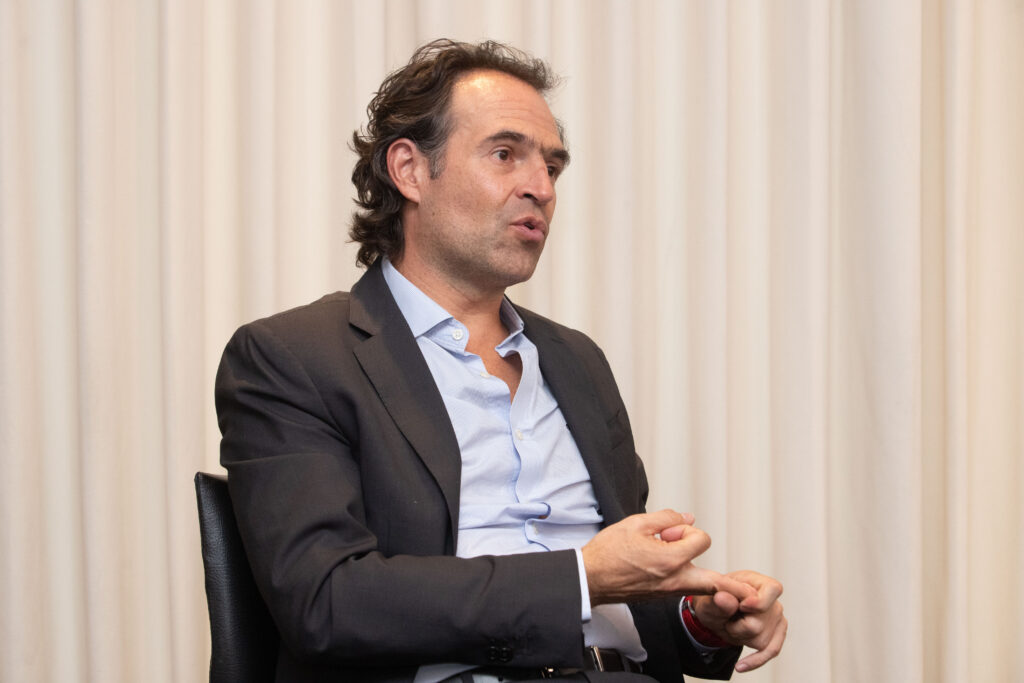
TBP: Much of the international community, including the UN, has been underwhelmed and even disappointed with how the Colombian government has implemented the 2016 peace process with the FARC. As president, would you commit to doing everything in your power to fulfill the peace agreement?
FG: I commit myself to work for security, peace, and opportunities throughout the Colombian territory. As I have said, I consider that the most important thing is to fulfill the needs of the ex-combatants and for that, the countryside must be supported, guarantee the necessary land policies to promote peace and opportunities in rural areas; ensure the restoration of the rights of more than 8 million victims in our country and bring the state to the municipalities that have suffered so much pain, death, and poverty due to the conflict.
Likewise, I consider it fundamental that all parties to the agreement show a serious commitment; the JEP – Jurisdicción Especial para la Paz – must demonstrate to the country that it will administer justice to those who committed crimes against humanity.
TBP: How do you want to make Colombia a safer country for everyone? What is the role of the peace process in this?
FG: In the first place, security must be guaranteed by the State; Colombians cannot continue to feel unsafe on the streets or under the control of illegal actors linked to drug trafficking in the territories. We have to work daily to reduce high-impact crimes and capture those responsible for this type of unlawful behavior.
It is necessary to implement an integrated security model in which, on the one hand, we recover the operational capacity of the public forces to provide security and exercise control in the territories and, on the other hand, we bring development opportunities to the citizens of deep Colombia – educational, labor, cultural or sports opportunities, etc.- that allow them to insert themselves into the economic and social life of the country through a better life project.
With new opportunities, we can abstract citizens from the interference and control of illegal groups that offer them to join the chain of drug trafficking, illegal mining, or organized crime as a way out of the precarious situation they live in.
The peace process is a historic opportunity we have to recover. Many Colombians were led to the path of illegality precisely for lack of opportunities. Unfortunately, the agreement didn’t properly anticipate filling the empty spaces left by the FARC. These were immediately taken over by organized armed groups and dissidents of the FARC and the ELN linked to drug trafficking.
In our government, we will comply with the young people who were forcibly recruited, physically and sexually abused, exploited and manipulated, and the victims of the armed conflict. Our commitment is with these young people who laid down their arms and with the citizens who the FARC victimized, but not with the guerrilla leaders who committed crimes against humanity and who are currently unpunished.
TBP: Technology remains an impediment to access to education in Colombia; how will your administration seek to expand access to technology, such as the Internet, and educational opportunities in rural areas?
FG: The pandemic has shown us that the Internet is an essential service for Colombians and, in turn, allows the realization of other rights such as information, freedom of expression, employment, and of course, education. But in Colombia, there is a big problem. The wide digital gap mainly affects lagging departments such as Chocó, La Guajira, and those belonging to the Orinoco-Amazon region.
According to the DANE, the proportion of households with internet connection in Colombia is 56.5% – 66.5% in large cities and 23.8% in rural and dispersed areas-; that is, one out of every two households lacks fixed internet, and more than 26 million Colombians don’t have a mobile internet connection, especially in remote areas. Therefore, we must invest progressively to close the digital gap and ensure that by 2030 the population has universal access to the Internet.
We will connect all official educational centers to the Internet and generate a vital minimum of Internet data for the 4 million students who don’t have access to the network. It is not possible that the children and young people who most need a quality education are the ones who face the greatest barriers in accessing technology, global knowledge, and information. For this purpose, the articulated work between the public and private sectors will be fundamental.
TBP: Over the past year, the pandemic has spurred some of the worst civil unrest that Colombia has seen in some time. Much of it is also linked to gross economic inequality and violence toward social leaders. How would your administration tackle inequality and promote public order going forward?
FG: The first thing to say is that although there are social claims that are fair and valid, for me, they cannot become justifications for the generation of violence, blockades that affect the economy, and populist speeches that end in authoritarian threats to democracy.
We must promote channels of dialogue among all sectors of the country to reach basic agreements such as overcoming the poverty of the more than 21 million Colombians who are in this condition after the pandemic.
In addition to strengthening the State and democratic institutions from an integral vision of security, criminal structures are combated on the one hand. The territory is controlled, and on the other hand, opportunities and social investments are created where they are most needed.
We will counteract the high levels of inequality in Colombia without populism or class struggle. We will do so through a conscious, sustainable, and competitive economic model that innovates, generates growth in the regions, takes advantage of all the benefits of the fourth industrial revolution, creates social welfare, and is environmentally responsible.


